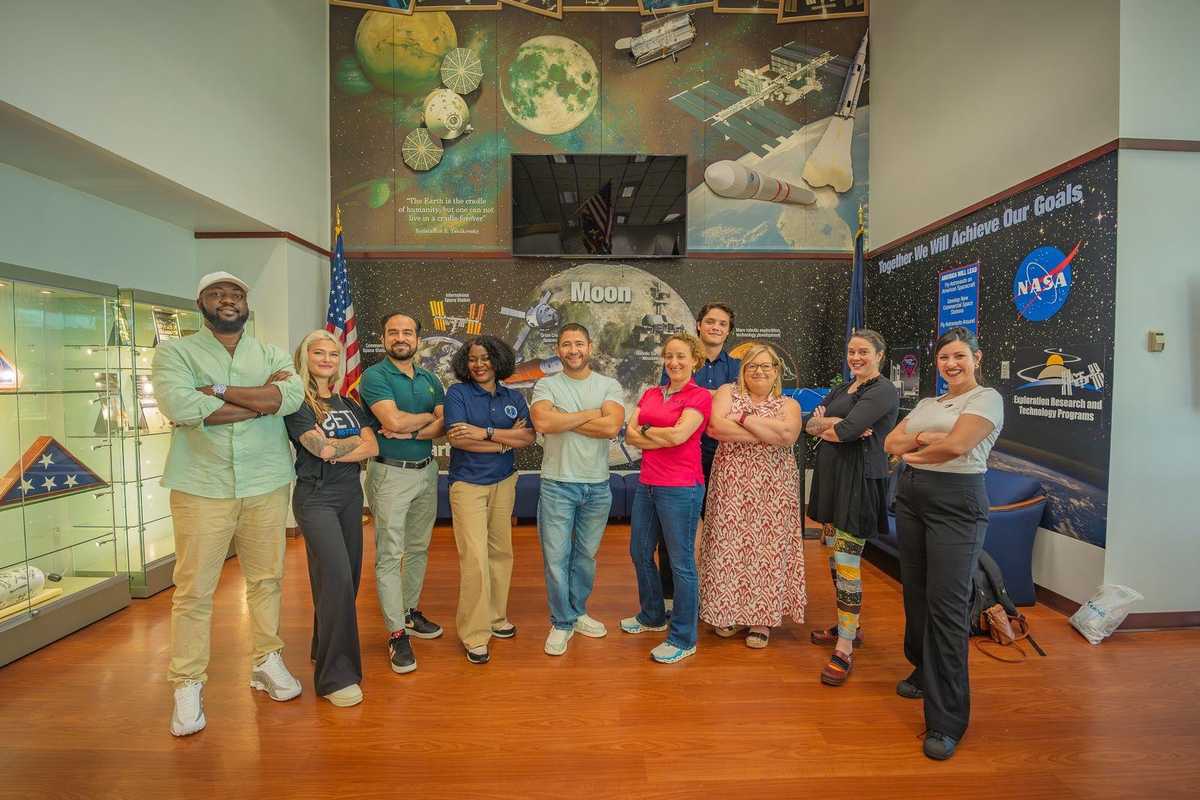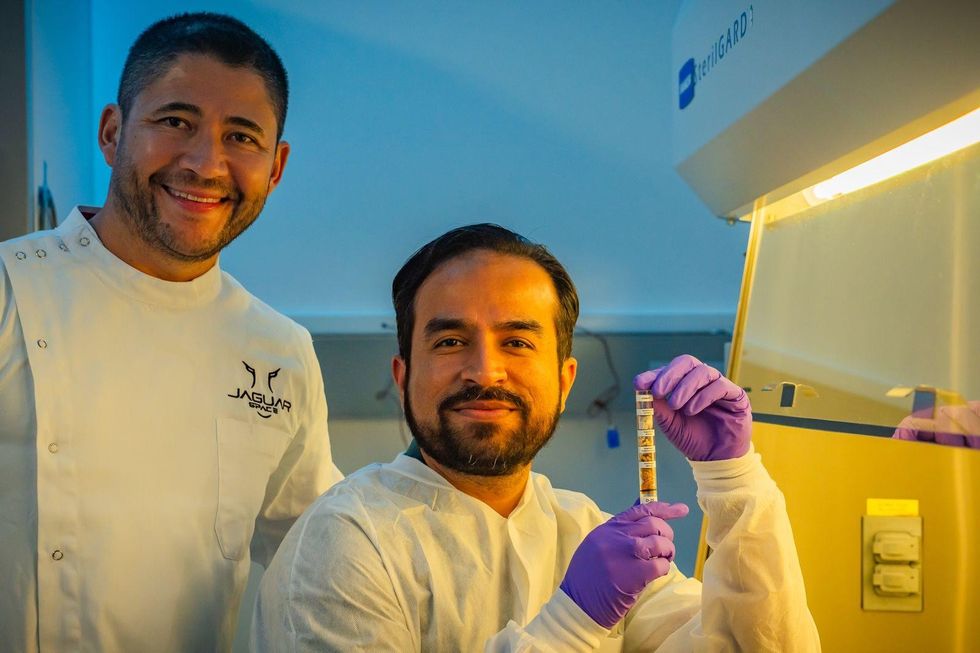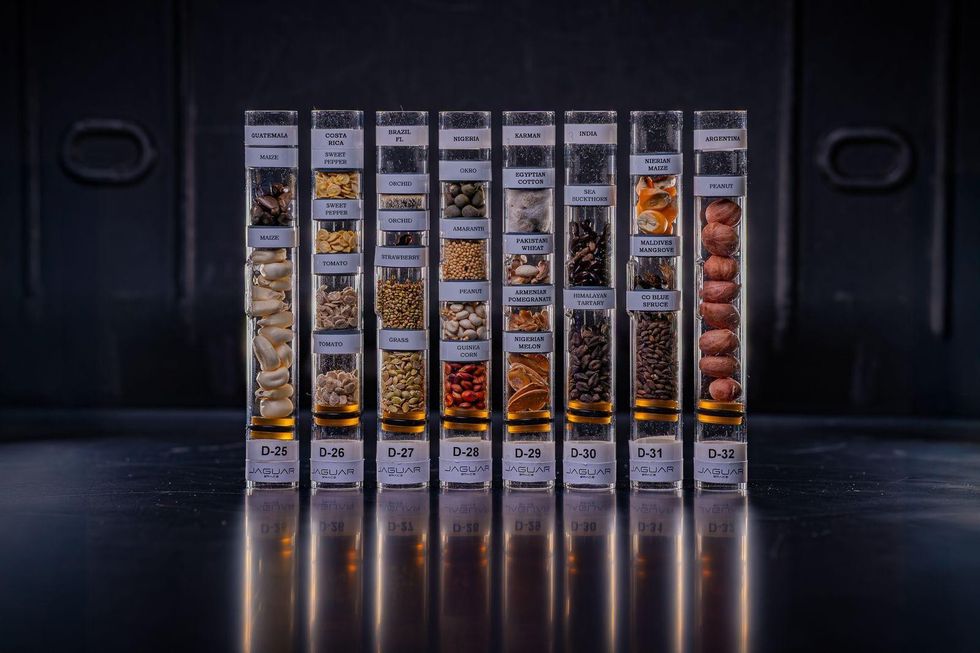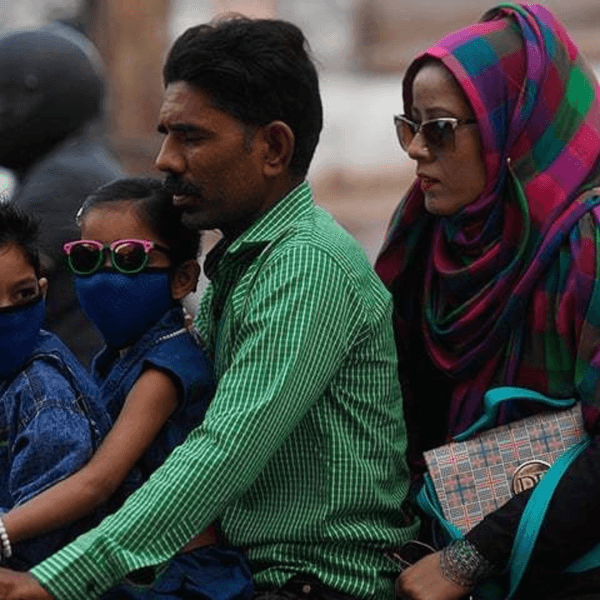Growing hope in microgravity: Pakistani wheat seeds join climate fight from space
In a first, Pakistan sends wheat seeds to the ISS to study traits for climate-resilient crops

Javed Hussain
Correspondent
I have almost 20 years of experience in print, radio, and TV media. I started my career with "Daily Jang" after which I got the opportunity to work in FM 103, Radio Pakistan, News One, Ab Tak News, Dawn News TV, Dunya News, 92 News and regional channels Rohi TV, Apna Channel and Sach TV where I worked and gained experience in different areas of all three mediums. My journey from reporting to news anchor in these organisations was excellent. Now, I am working as a correspondent with Nukta in Islamabad, where I get the opportunity of in-depth journalism and storytelling while I am now covering parliamentary affairs, politics, and technology.

The project is led by Pakistani engineer Mahhad Nayyar and botanist Muhammad Haroon as part of the Karman-Jaguar Earth Seeds for Space initiative.
Courtesy: Mahhad Nayyar
As climate change threatens global food security, scientists are looking to space for solutions — and Pakistan has just joined the mission.
For the first time, wheat seeds from Pakistan have been sent to the International Space Station to study how crops adapt and survive in extreme environments, including those on Earth facing drought and rising temperatures.
The project is led by Pakistani engineer Mahhad Nayyar and botanist Muhammad Haroon as part of the Karman-Jaguar Earth Seeds for Space initiative. It is one of four experiments selected globally, alongside entries from Nigeria, Egypt, and Armenia.
The seeds, a native Pakistani wheat variety, launched aboard a SpaceX Dragon capsule on Aug. 1 from NASA’s Kennedy Space Center. The study will examine how exposure to microgravity affects the seeds’ physiology and genetics, focusing on drought tolerance and water efficiency.

“For us, wheat was the perfect candidate,” said Haroon, a plant sciences student at Purdue University. “It’s not just culturally significant — it’s scientifically relevant. If we can make wheat more resilient to water stress, it could transform food systems both in space and in regions like Pakistan.”
Once the seeds return to Earth later this month, the team will conduct controlled germination studies, paying special attention to stomatal traits — tiny pores that regulate water loss and gas exchange. The findings could inform crop breeding programs for arid regions.
“We’re hoping this experiment will help us develop wheat that requires less water, making it suitable not just for astronauts on Mars, but for farmers in Tharparkar,” Nayyar said.
The milestone marks Pakistan’s first research contribution to the ISS. Nayyar, a former Pakistan Air Force engineer now pursuing a PhD in space situational awareness, called it both a scientific and symbolic achievement.

“In a world where space is becoming more crowded, countries like Pakistan must stake their claim — not just for prestige, but for survival,” he said.
With global temperatures climbing and freshwater resources dwindling, space-based agriculture research is gaining importance. NASA and other space agencies are investing in ways to grow food in controlled environments — both for future space missions and for tackling food insecurity on Earth.
“This is just the beginning,” Nayyar said. “If we can grow hope in microgravity, maybe we can bring it back to Earth.”
Nayyar told Nukta that the team’s long-term goal is to identify beneficial traits linked to drought tolerance and water efficiency, particularly those tied to stomatal behavior and stress responses. If proven viable, these traits could help breed cultivars needing less water, suitable for regions under extreme climate stress.

He added that space limitations aboard the ISS meant seed size, texture, and packaging were crucial in selection. “Since the wheat seeds were of suitable size and had already been imported from Pakistan for research in the U.S., we selected a few for the space experiment.”
Professor Qamarul Islam of the Institute of Space Technology in Islamabad welcomed the initiative, saying space-based crop research can reveal genetic traits for disease resistance and help future space colonies.
He said experiments like this can also improve Earth crops by showing how plants grow differently in microgravity.







Comments
See what people are discussing